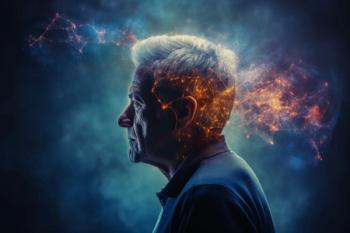
- Psychiatric Times Vol 36, Issue 12
- Volume 36
- Issue 12
Understanding and Managing Agitation Associated with Dementia
Agitation can worsen function, pose safety concerns, and increase caregiver stress. It can be both confusing and frustrating to understand and manage these behaviors, but there are several approaches that can make all the difference.
CONFERENCE REPORTER
Every clinician who works with individuals who have dementia-what we now refer to as major neurocognitive disorders-encounters states of agitation that can worsen function, pose safety concerns, and increase caregiver stress. It can be both confusing and frustrating to understand and manage these behaviors, but there are several approaches that can make all the difference.
Agitation has been
Agitation has many medical, medication-related, psychiatric, psychological, and environmental causes-but underlying all of them is a damaged and vulnerable brain that is less able to properly regulate affect and respond to challenges in an organized manner. Specifically, agitation has been associated with damage to key brain nuclei that
A thorough medical and psychiatric evaluation as well as a review of the circumstances before, during, and after periods of agitation may reveal both enduring causes, such as an underlying depression or the use of a stimulating medication, and transient triggers such as boredom, hunger, or a noxious stimulus in the environment. The DICE algorithm developed by
Management of agitation involve three basic approaches. The first is to identify and address potential causes. The second is to implement behavioral approaches, ranging from increased therapeutic activities (eg, art or music therapy), to redirecting and refocusing the person to more positive activities, especially ones that meet the basic function of the agitation in the first place. The third approach involves the use of psychotropic medications that are targeted towards underlying factors such as anxiety or psychosis, or primarily aimed at reducing agitation by calming brain activity. Benzodiazepines and trazodone are often used emergently but can cause sedation and increase the risk of falling. Antidepressants are being studied since their modulation of serotonergic activity is aimed at reducing impulsivity and aggression. Anticonvulsants have been used to inhibit brain activity causing agitation, but with limited scientific support.
Antipsychotic medications have been widely studied, and while there is a fair amount of
The best outcome will always stem from a systematic approach that seeks to understand and address the underlying causes and triggers of agitation, and then implements and evaluates both behavioral and pharmacologic approaches, with a clear eye on safety.
This article was originally posted on 10/8/19 and has since been updated.
Disclosures:
Dr Agronin is a geriatric psychiatrist and currently serves as the Senior Vice President for Behavioral Health and the Chief Medical office at MIND Institute at Miami Jewish Health in Miami, FL. He is the author of
The author reports no disclosures concerning the subject matter of this article.
References:
1. Cummings J, Mintzer J, Brodaty H, et al.
2. Lyketsos CG, Carrillo MC, Ryan JM, et al.
3. Sultzer DL, Mahler ME, Mandelkern MA, et al.
4. McLoughlin DM, Lucey JV, Dinan TG.
5. Kales HC, Gitlin LN, Lyketsos CG; Detroit Expert Panel on Assessment and Management of Neuropsychiatric Symptoms of Dementia.
6. Tampi RR, Tampi DJ, Balachandran S, Srinivasan S.
Articles in this issue
about 6 years ago
Paraphilias: From Diagnosis to Treatmentabout 6 years ago
Illuminate Life Processes by Taking a Sexual Historyabout 6 years ago
Toward A Bio-Psycho-Social-Eco Model of Psychiatryabout 6 years ago
Hospital-Level Psychiatric Emergency Department Modelsabout 6 years ago
Clinical Updates From Bipolar Telehealthabout 6 years ago
Erotic and Psychological Identitiesabout 6 years ago
Normal Versus Abnormal Sexual Behavior in Adolescentsabout 6 years ago
Special Issues in Treating Adolescents With Gender Dysphoriaabout 6 years ago
LGBTQ Mental Health: What Every Clinician Needs to Knowabout 6 years ago
Sexting: the Technological Evolution of the Sexual RevolutionNewsletter
Receive trusted psychiatric news, expert analysis, and clinical insights — subscribe today to support your practice and your patients.






